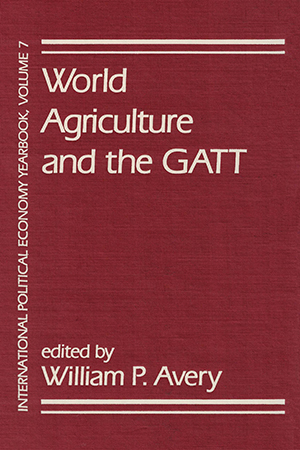
- 1992/236 pages
- International Political Economy (IPE) Yearbook, Volume 7
World Agriculture and the GATT
Hardcover: $37.00
ISBN: 978-1-55587-309-7
Agriculture—central to the interests of both the rich industrialized countries, where it is heavily subsidized, and the poor nonindustrialized countries, where it is often the principal source of export earnings—has posed a problem for the global-free-trade regime since the beginning of the GATT. Multilateral trade negotiations have continually failed to bring agriculture into the free-trade system. And the most recent negotiations, the Uruguay Round, collapsed in December 1990 because of lack of agreement on terms to liberalize agricultural trade. Resumed in 1991, those talks continue to deadlock over this issue.
This book examines the role of agriculture in global free trade, the competing interests of the United States, Europe, Japan, and the LDCs, the tension between states' domestic agricultural and international trade interests, and the particular impact of agriculture on the Uruguay Round.
This book examines the role of agriculture in global free trade, the competing interests of the United States, Europe, Japan, and the LDCs, the tension between states' domestic agricultural and international trade interests, and the particular impact of agriculture on the Uruguay Round.







